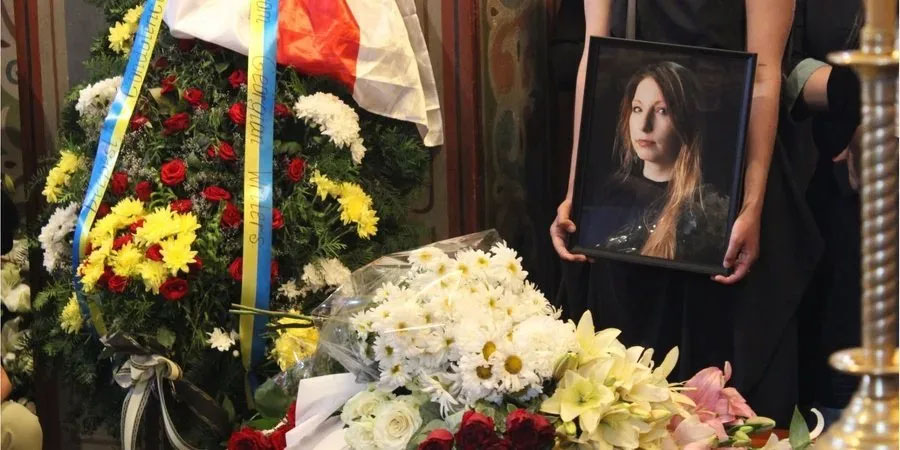Victoria Amelina: Ukraine and the meaning of home

Victoria Amelina, the Ukrainian writer and Russian war crimes researcher, died on 1 July 2023 of wounds sustained during Russia's criminal missile attack on the eastern Ukrainian city of Kramatorsk on 27 June. She was buried in her native city of Lviv on 5 July. On 6 July, this historic city, a jewel of culture, architecture, and art, was attacked by Russian missiles. At least six people died and 34 were wounded.
The blasts were so strong that a colleague working on a joint project of the Ukrainian Jewish Encounter and NGO Publisher's Forum wrote: "Hello! Alive. I slept a little. Strong explosions destroyed all the windows in the apartment, and at the entrance, everything is in broken glass. The metal door at the lower entrance looks like paper. It seems everyone is alive in our building. Vika (Victoria) Amelina was buried yesterday. Sadly. She was a brilliant writer and a tireless angel."
Amelina wrote eloquently about history and connections between people. Yesterday we shared with readers an article that appeared in Volume VII of the Arrowsmith Press Journal titled Nothing Bad Has Ever Happened. Today, Britain's The Guardian newspaper ran an essay by Amelina first published by the International Writing Program (IWP) at the University of Iowa under the title Expanding the Boundaries Of Home: A Story for Us All.
We convey our deepest sympathy to everyone who has lost family and friends in Russia's criminal war against Ukraine.
Expanding the Boundaries of Home: A Story for us all
By Victoria Amelina
Since the fall of the Berlin Wall in 1989, many believed that all other borders would disappear as well. I remember singing the band Scorpions' song "Wind of Change" at an international summer camp near Pskov, Russia, and feeling like the lyrics truly spoke to me: "The world is closing in/and did you ever think/ that we could be so close, like brothers?" Were we all just "children of tomorrow," dreaming and believing in a better future? Where are we now?
The winds of change turned out to be nothing more than an illusion, and my belief in it only shows that, culturally and mentally, Ukraine has always been a part of the somewhat naive West. The difference is that the Ukrainians are destined to face the truth eventually. Some learned it from the stories of Ukrainian dissidents like poet Vasyl Stus, who was murdered in a Russian penal colony just five years before "Wind of Change" was released in 1990. Others, like me, had to experience the Russian world firsthand to realize that the border between Russia and Ukraine is not a redundancy or a formality, but an essential need for our survival.
It seems that we all are doomed to constantly make mistakes about where our home, the safe space of trust, ends and which of its borders should be especially well-guarded.
Read More @IWP



















